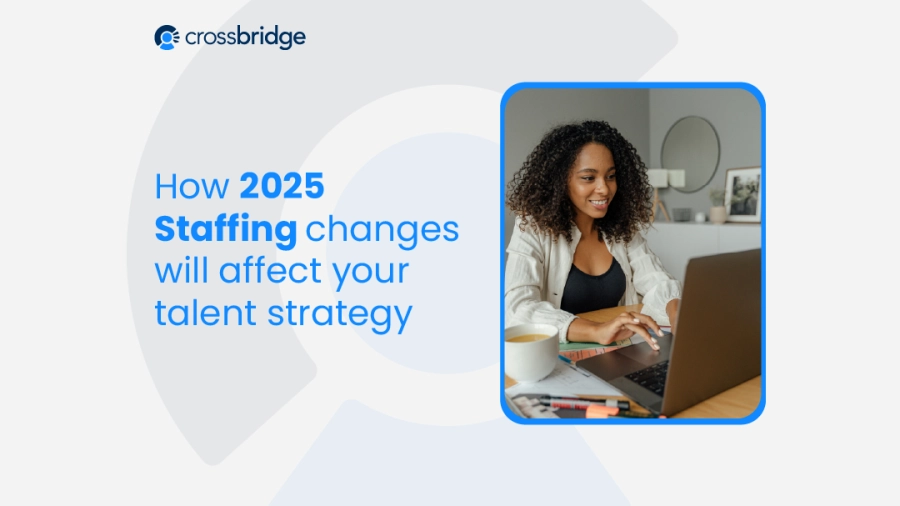The tech staffing industry is experiencing significant changes in 2025. From the impact of AI on the hiring process to the growing preference for remote work, businesses must rethink their recruitment strategies. Here are five key trends shaping the future of tech staffing and how to integrate them into your talent strategy.
1. AI in Recruitment
AI is changing how we hire today, and it will keep evolving in 2025. With AI tools, you can screen resumes in minutes, match candidates to job requirements more accurately, and even use chatbots for early-stage interviews. This isn’t about replacing the human touch; it’s about speeding up processes and ensuring you connect with the right talent faster.
2. Remote work
With hybrid and remote-first models dominating the tech world, the old boundaries of hiring are gone. Now, companies can search globally for talent, which opens opportunities to find the best people regardless of location. This also means rethinking your recruitment and talent strategy. It’s essential to have tools that make onboarding and communication seamless. In fact, a Gartner report found that by 2025, nearly 70% of the workforce will be working remotely at least part-time. So, if you are not already offering remote roles, you might be missing out on top talent.
3. The rise of the gig economy:
More and more tech professionals are choosing to work on a project basis rather than in full-time roles. The gig economy offers flexibility for both workers and employers. This shift means companies need to adapt to a staffing model that can scale quickly based on demand. Offering freelance or contract roles is a great way to access specialized skills when needed, without long-term commitment. It’s projected that by 2025, freelancers will make up 50% of the tech workforce. If you’re looking to compete, embracing this model will be key.
4. Diversity, Equity, and Inclusion (DEI):
Diversity isn’t just a nice-to-have anymore—it’s a must. Companies with diverse teams are more innovative, creative, and financially successful. As we move into 2025, it will be increasingly important for businesses to focus on DEI, especially in the tech space, where the talent pool has traditionally lacked diversity. Not only does this help build stronger teams, but it also improves your brand’s reputation as an employer. According to McKinsey, companies that prioritize DEI are 36% more likely to outperform their competitors.
5. Upskilling & Reskilling:
The pace of tech evolution means that today’s skills can quickly become outdated. Upskilling and reskilling your existing team should be a priority in your 2025 talent strategy. Offering learning and development opportunities not only keeps your workforce on top of the latest trends, but it also helps retain talent—people are more likely to stay at a company that invests in their growth.
The takeaway?
2025 is all about staying flexible, leveraging technology, and prioritizing people. Whether it’s through AI, embracing remote work, or focusing on DEI, staying ahead of these trends will ensure you remain competitive in the race for talent. Don’t wait until these shifts are fully mainstream—get ahead now and make 2025 your best year for hiring! Talk with a talent strategist from our team.
Sources:
1. LinkedIn. “AI & The Future of Work”
2. Gartner. “Top 5 Future of Work Trends for 2025”
3. Upwork. “Freelance Forward: The Next Decade”
